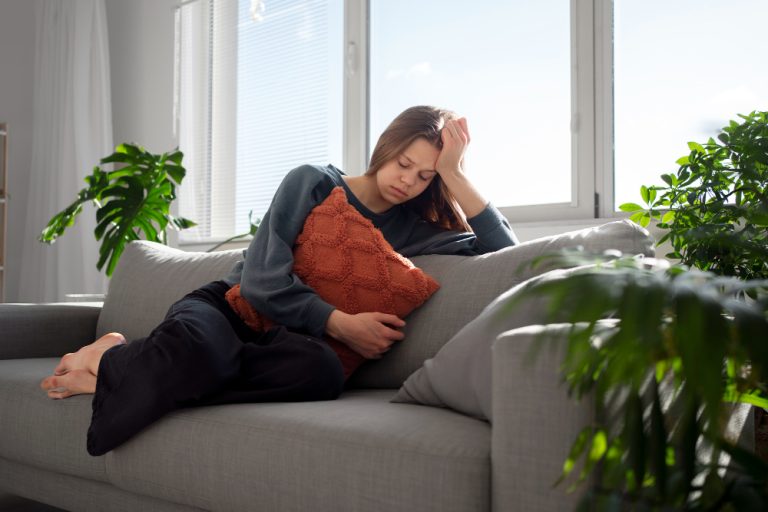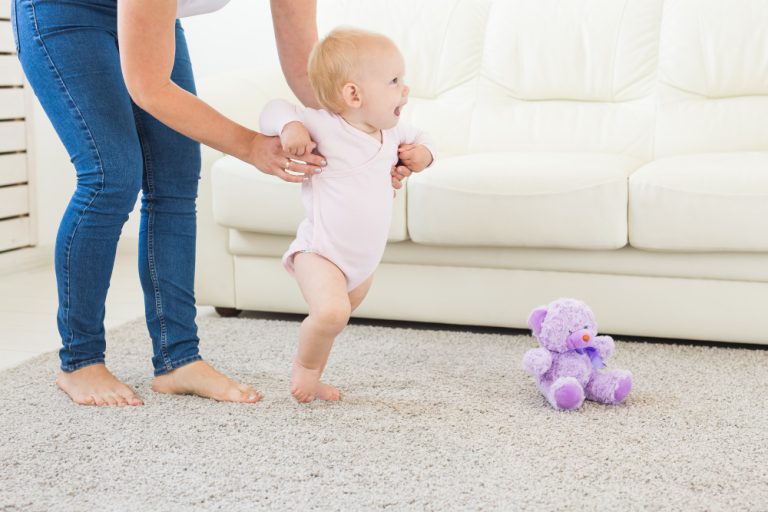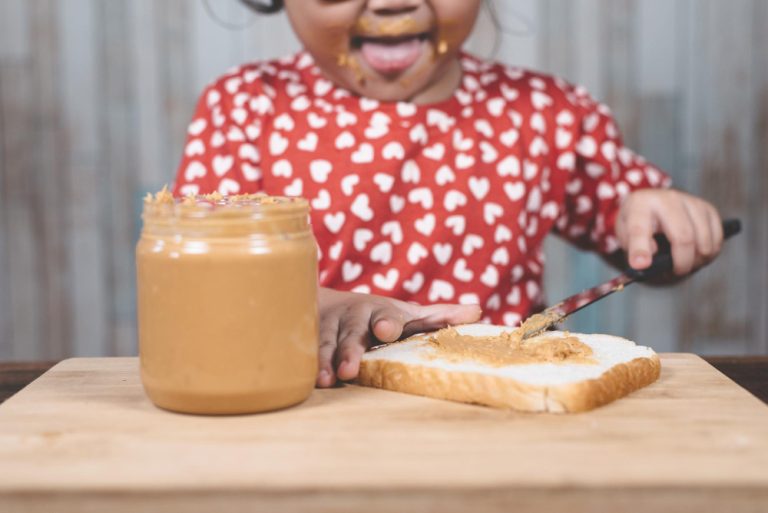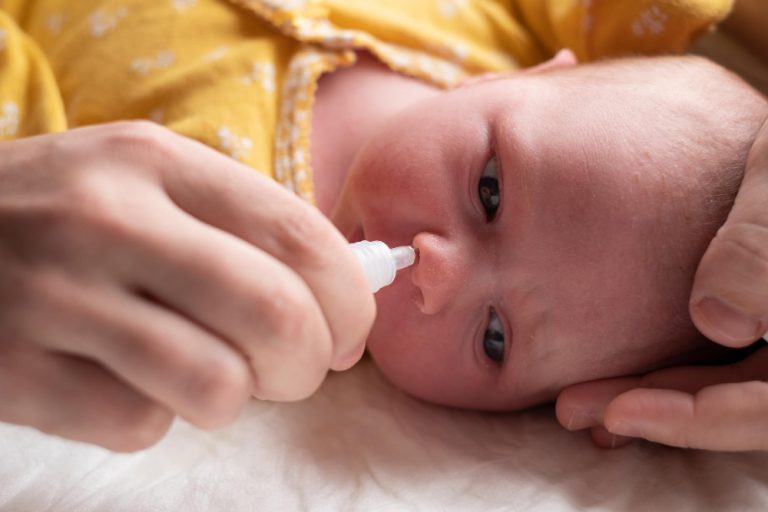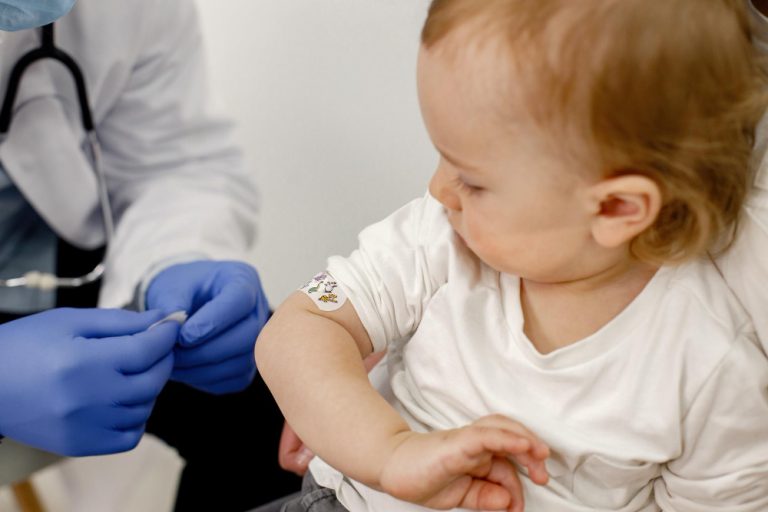How To Treat Mosquito Bites On Babies? Bites On Infants
Are you constantly fretting over your baby’s discomfort and itchiness caused by those pesky mosquito bites? Can you picture your little one’s delicate skin covered in red bumps and feel at a loss on how to provide relief? As a parent, witnessing your baby suffer from mosquito bites can be distressing. Our comprehensive guide on how to treat mosquito bites on babies is here to offer expert advice and solutions to help your baby find relief from those pesky bites.
In this blog, we will delve into safe and effective remedies that will help soothe the itch and prevent further irritation for your precious little munchkin. From natural remedies to over-the-counter treatments, we’ll explore a range of options to alleviate your baby’s discomfort. Discover tips to ease itching and promote healing, ensuring your baby’s skin remains healthy and itch-free.
Say goodbye to sleepless nights and fretful days – our expert tips will empower you on how to treat mosquito bites on babies, making parenting a little less stressful and much more comfortable.
Introduction: How To Treat Mosquito Bites On Babies
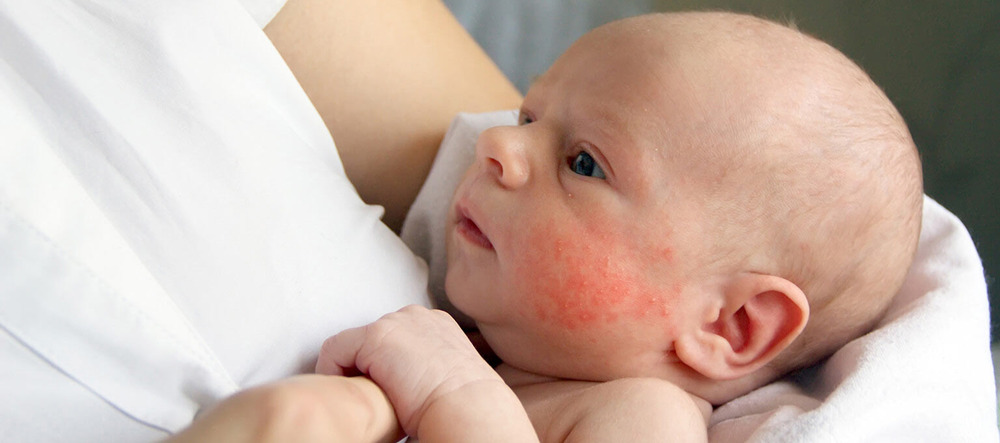
Mosquito bites can be a nuisance for anyone, but when it comes to our little ones, providing relief and comfort is essential. Treating mosquito bites on babies is crucial to prevent further irritation, itching, and potential complications. In this introduction, we will explore the significance of treating mosquito bites on babies and the importance of finding effective remedies to alleviate discomfort.
Babies have delicate and sensitive skin, making them more prone to mosquito bites and the subsequent itching and swelling. Additionally, infants may not be able to communicate their discomfort, leading to more severe scratching and potential infections.
As parents or caregivers, our primary goal is to ensure the well-being and comfort of our babies. Treating mosquito bites promptly not only soothes their itching but also prevents the risk of infection. By understanding the various treatment options available and implementing preventive measures, we can protect our little ones from the discomfort caused by these pesky insects.
In the following sections, we will delve deeper into the causes and reactions of mosquito bites on infants, common signs and symptoms to watch out for, effective treatment options, preventive measures, and when to seek medical help.
So, let’s get started on this comprehensive guide on how to treat mosquito bites on babies and provide them with the relief they deserve.
Understanding Mosquito Bites
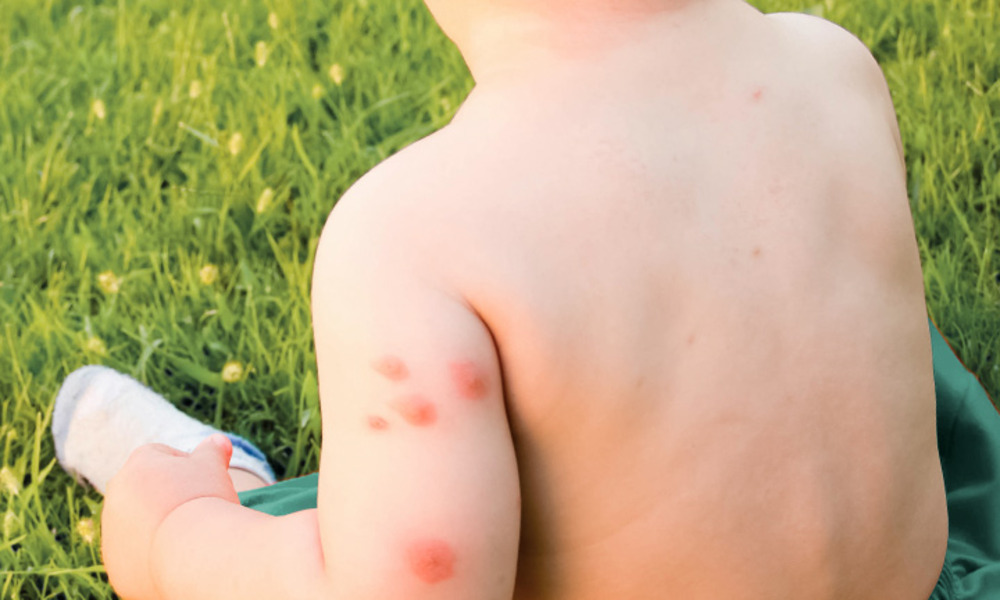
Mosquito bites can be a common source of discomfort for babies, causing redness, itching, and swelling. Understanding the causes and reactions to mosquito bites on infants is essential in providing the necessary care and treatment.
Mosquito bites occur when female mosquitoes are drawn to human blood as a source of nutrition for their eggs. As they puncture the skin with their sharp, tube-like mouthparts, they inject saliva containing anticoagulants to prevent blood clotting.
It is this saliva that triggers an immune response in babies, resulting in localized inflammation and itching.
For some infants, the body’s reaction to mosquito bites may be more pronounced, leading to enlarged red bumps or welts. These larger hives occur due to a stronger response to the mosquito’s saliva. While the majority of mosquito bites on babies are harmless, there are risks and complications associated with them.
One concern is the potential for infection. If a baby scratches the bite excessively, it can break the skin and introduce bacteria, leading to a small water blister or a red bump with a soft scab.
Additionally, some babies may experience a severe allergic reaction to mosquito bites, known as anaphylaxis, which can be life-threatening and requires immediate medical attention. It is important to monitor your baby closely for any concerning symptoms.
To protect your little one from the discomfort of mosquito bites, it is advisable to dress them in long-sleeved shirts and long pants, especially during peak mosquito hours.
Applying a safe and effective insect repellent specifically formulated for infants can also help prevent mosquito bites. However, it is important to consult with your pediatrician before using any product on your baby’s delicate skin.
By understanding the causes, reactions, and potential risks associated with mosquito bites on infants, you can provide the necessary care and take appropriate measures to minimize discomfort and possible complications for your little one.
Signs and Symptoms
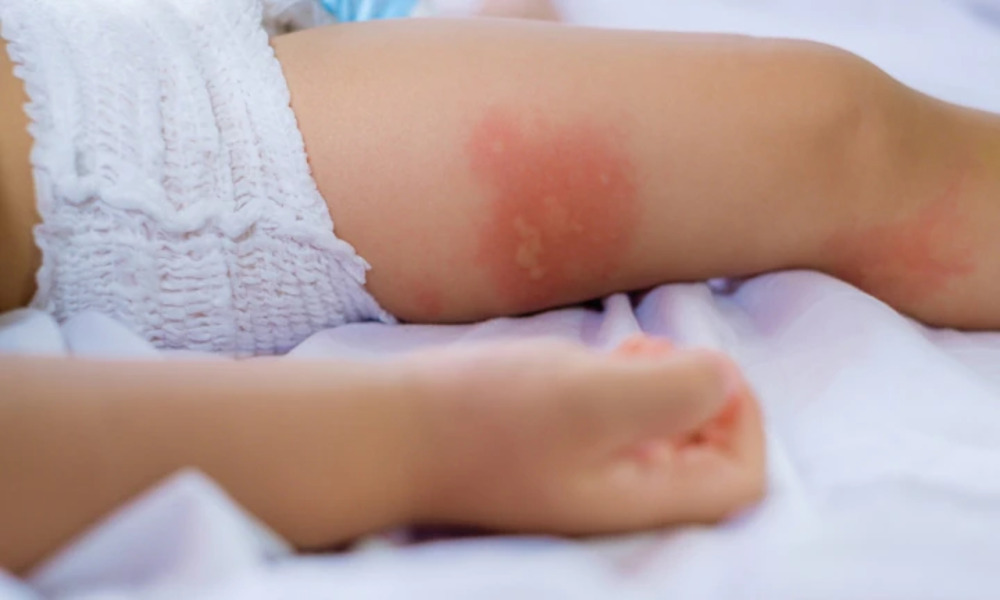
Mosquito bites on babies can result in various signs and symptoms that indicate their discomfort. Identifying these reactions is essential to providing appropriate treatment and relief to your little one. Some common signs of mosquito bites on infants include:
1. Redness
Mosquito bites typically cause red, raised bumps on the baby’s skin.
2. Itching
The bites can be itchy, leading to constant scratching by the baby.
3. Swelling
Mosquito bites may cause localized swelling around the affected area.
4. Irritability
Babies may become fussy, restless, or irritable due to the discomfort caused by the bites.
5. Mild Pain
Some babies may experience mild pain or tenderness at the bite site.
If you notice these symptoms, it’s important to take measures to soothe the affected area and prevent further irritation.
Treatment Options
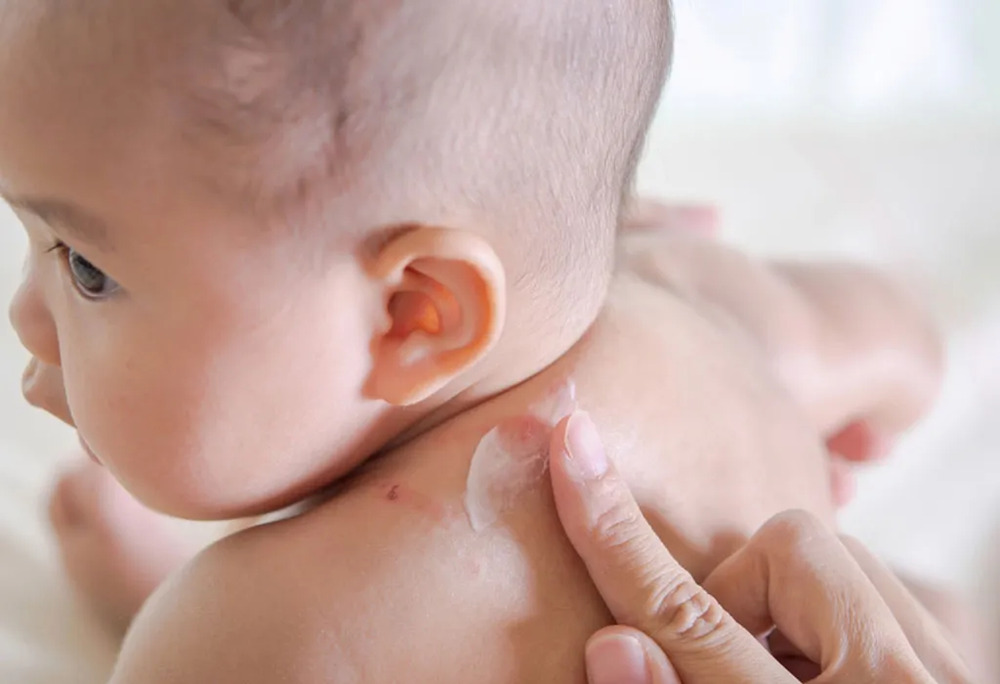
When it comes to treating mosquito bites on infants, several options can help alleviate discomfort and promote healing. Here are some treatment options to consider:
1. Natural Remedies
- Applying a cold compress to the affected area can help reduce swelling and itching.
- Using natural oils like lavender or tea tree oil may soothe the skin and provide relief.
- Calamine lotion is also a popular choice for soothing mosquito bites on babies.
2. Over-the-Counter Treatments
- There are creams and ointments specifically designed to treat mosquito bites on infants.
- Look for products containing ingredients like hydrocortisone or antihistamines to help reduce itching and inflammation.
It’s important to consult with your pediatrician before using any over-the-counter treatments, especially for infants under six months old. They can provide guidance on the most suitable options for your baby.
Remember, prevention is key in protecting your little one from mosquito bites. Avoiding outdoor activities during peak mosquito hours, using mosquito nets, and applying insect repellents approved for use on infants can help minimize their exposure.
If you’re unsure about the best treatment option for your baby or if you notice any severe allergic reactions or signs of infection, it’s essential to seek medical help promptly.
By considering these treatment options, you can provide relief and comfort for your baby while promoting the healing process of mosquito bites.
Home Remedies: How To Treat Mosquito Bites On Babies
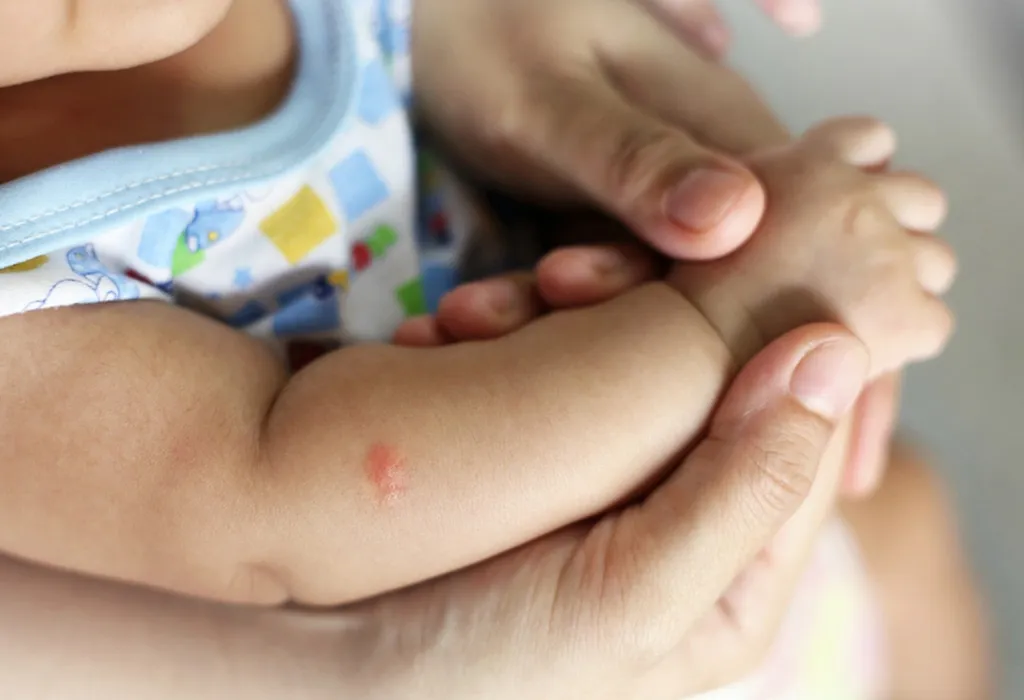
When it comes to soothing mosquito bites on babies, several effective home remedies can provide relief and comfort. These remedies are safe, gentle on sensitive baby skin, and easily accessible.
Here are some natural solutions to consider:
Cold Compress
- Applying a cold compress to the affected area can help reduce itching and inflammation caused by mosquito bites.
- Simply wrap a clean cloth or ice pack in a thin towel and gently press it against the bite for a few minutes.
- The cool temperature can provide temporary relief and help alleviate discomfort.
Natural Oils
- Certain natural oils have properties that can soothe mosquito bites and promote healing.
- Chamomile, lavender, and tea tree oil are known for their anti-inflammatory and calming effects.
- Dilute a few drops of these oils with a carrier oil, such as coconut or almond oil, and apply the mixture to the mosquito bites using a cotton ball.
- Remember to do a patch test first to ensure your baby has no allergic reactions.
Calamine Lotion
- Calamine lotion is a common remedy for soothing insect bites, including mosquito bites.
- It contains zinc oxide and calamine, which can relieve itching and reduce inflammation.
- Gently apply a thin layer of calamine lotion to the affected area and allow it to dry.
- Follow the instructions on the packaging and avoid applying it near your baby’s eyes or mouth.
Baking Soda Paste
- Mixing baking soda with water to create a paste can help alleviate itching and reduce inflammation from mosquito bites.
- Apply a small amount of the paste onto the affected area and leave it on for 10 to 15 minutes before rinsing it off with lukewarm water.
- This simple remedy can provide temporary relief and promote healing.
It’s important to consult with your pediatrician before using home remedies, especially if your baby has sensitive skin or any underlying health conditions. Remember that these remedies may not work for every baby, and if your little one’s symptoms worsen or persist, it’s best to seek medical advice.
Utilizing these natural solutions can provide soothing relief for your baby’s mosquito bites and help them feel more comfortable during the healing process.
Over-the-Counter Products
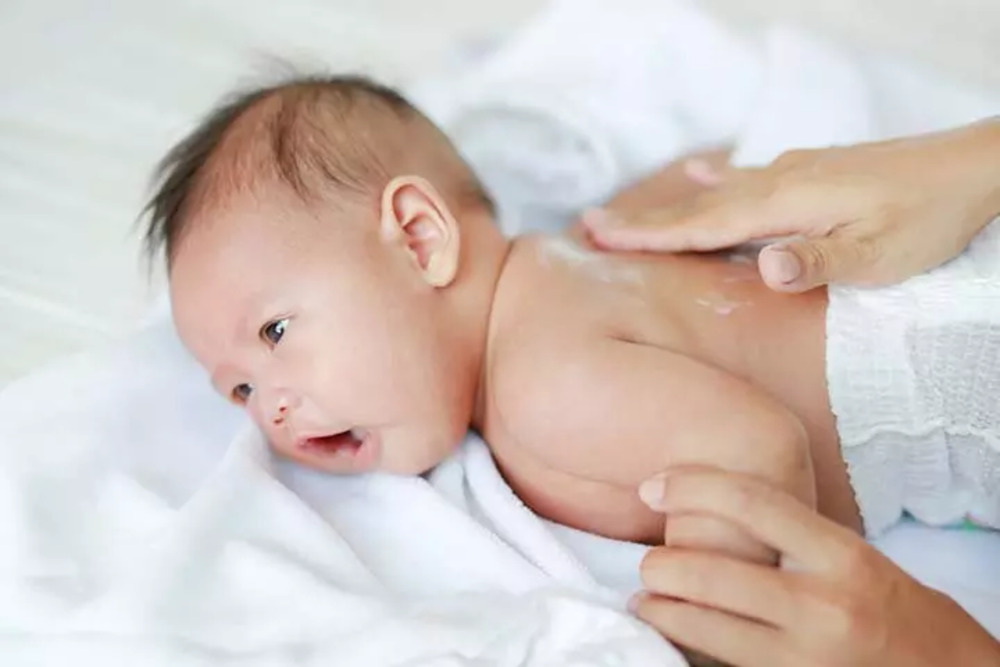
When it comes to treating mosquito bites on infants, several over-the-counter products are specifically designed to provide relief and promote healing. These products, such as creams and ointments, come in various forms and can be applied directly to the affected area.
Here are some options to consider:
1. Calamine Lotion
- Calamine lotion is a popular choice for soothing mosquito bites.
- It contains zinc oxide and calamine, which help reduce itching and inflammation.
- Gently dab a small amount of calamine lotion onto the bite to ease your baby’s discomfort.
2. Hydrocortisone Cream
- Hydrocortisone cream is a mild corticosteroid that can help reduce itching and inflammation caused by mosquito bites.
- Apply a thin layer of hydrocortisone cream to the affected area, following the instructions on the packaging.
3. Antihistamine Creams
- Antihistamine creams can relieve itching caused by mosquito bites.
- These creams block the release of histamine, a chemical responsible for allergic reactions.
- Use antihistamine creams as directed, and avoid applying them to broken or irritated skin.
4. Oatmeal-based Products
- Oatmeal-based creams or lotions can help soothe and moisturize the skin affected by mosquito bites.
- The anti-inflammatory properties of oatmeal can provide relief from itchiness and irritation.
Remember to read the instructions and warnings on the packaging before using any over-the-counter products on your baby. If you notice any adverse reactions or if the symptoms worsen, discontinue use and consult a healthcare professional.
Resources
- https://www.mayoclinic.org/diseases-conditions/mosquito-bites/diagnosis-treatment/drc-20375332
- https://www.healthychildren.org/English/health-issues/conditions/infections/Pages/How-to-Treat-Bug-Bites-and-Stings.aspx
Prevention Tips
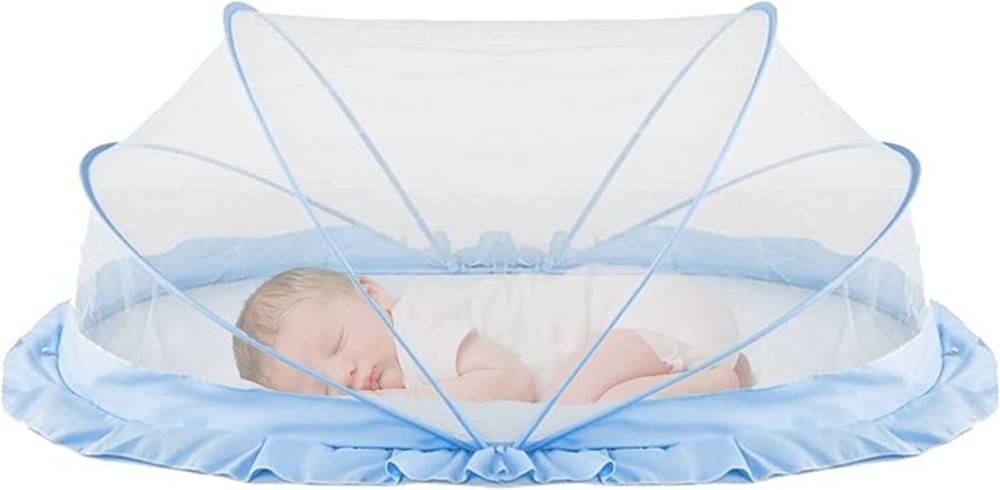
Protecting your baby from mosquito bites is essential to ensure their comfort and well-being. Here are some preventive measures you can take:
1. Use Mosquito Nets
Install mosquito nets on your baby’s crib, stroller, and play area to create a protective barrier against mosquitoes.
2. Avoid Peak Mosquito Hours
Mosquitoes are most active during dawn and dusk. Limit your baby’s outdoor activities during these times to reduce their exposure to mosquito bites.
3. Dress Appropriately
To minimize exposed skin, dress your baby in lightweight, long-sleeved shirts and long pants. Opt for breathable fabrics to keep them comfortable.
4. Use Insect Repellents
Choose an insect repellent specifically designed for infants and apply it to exposed areas of their skin. Look for products containing gentle ingredients such as picaridin or oil of lemon eucalyptus.
5. Keep Surroundings Clean
Remove stagnant water from your surroundings as mosquitoes breed in standing water. Empty any containers or flower pots that may collect water to reduce mosquito populations.
Before using any insect repellent or product on your baby, consult with your pediatrician to ensure their safety and appropriate usage. By following these prevention tips, you can minimize the chances of mosquito bites on your little one and keep them comfortable and protected.
When to Seek Medical Help
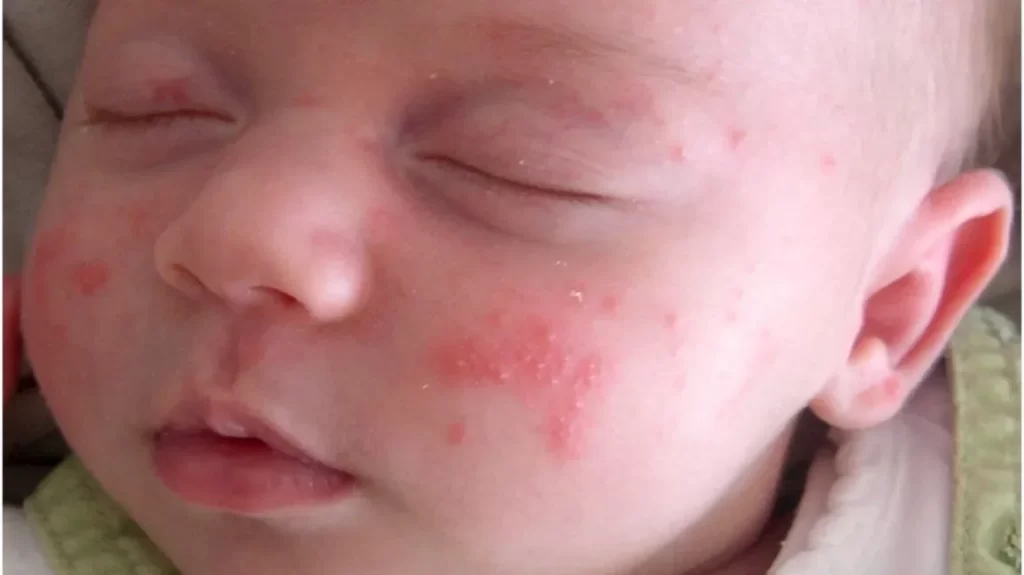
If your baby experiences severe allergic reactions or signs of infection after mosquito bites, it is crucial to seek medical help. Some indicators that warrant immediate attention include:
1. Severe Allergic Reactions
- Difficulty breathing or wheezing
- Swelling of the face, lips, or throat
- Rapid heartbeat or dizziness
- Unexplained hives or rashes on areas beyond the mosquito bite
2. Signs of Infection
- Increased redness, warmth, or tenderness around the bite
- Pus or discharge coming from the bite
- Worsening pain or swelling
- Fever or other systemic symptoms
Remember, your baby’s health and well-being are paramount. If you observe any of these symptoms, consult a pediatrician or healthcare professional promptly. They can evaluate the situation and provide appropriate medical treatment if necessary.
The Final Note: How To Treat Mosquito Bites On Babies
To sum up, treating mosquito bites on babies is crucial for their comfort and well-being. By understanding the causes, reactions, and potential risks associated with mosquito bites on infants, parents, and caregivers can provide the necessary care and take appropriate measures to minimize discomfort and possible complications for their little ones.
From natural remedies to over-the-counter treatments, there are various options available to alleviate your baby’s discomfort. It’s essential to stay vigilant for any concerning symptoms and seek medical help if necessary.
By following the expert advice and solutions provided in this comprehensive guide on how to treat mosquito bites on babies, parents can ensure that their precious little ones get the best night’s sleep and remain healthy, itch-free, and happy.
FAQs: How To Treat Mosquito Bites On Babies
Having questions about mosquito bites on babies is completely normal. This section addresses some common concerns and provides answers to help you navigate your baby’s mosquito bite journey.
Remember, each baby’s reaction to mosquito bites can be different. If you have any concerns or questions about your baby’s specific situation, it’s always best to consult a healthcare professional.


